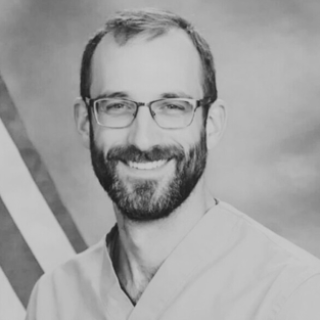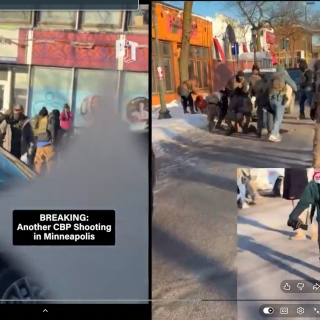In a white-dominated Columbus old-money suburb, another left-leaning government official is being targeted by a secretive group with an obvious right-wing bent.
Expressing or acting on progressive views in one of Central Ohio’s suburbs can, for example, get your Juneteenth celebration picketed. This happened to a group of Upper Arlington (UA) teachers last year. The “protester” was an ultra-conservative UA resident who was inciting likeminded residents to dox and harass Black Lives Matter supporters in UA through an unsearchable invite-only Facebook group called “UA Golden Pride.”
This school year in Worthington, school board member Nikki Hudson has been the target of a nonprofit named OneWorthington, which won’t reveal names of its leaders. The nonprofit was formed this summer not long after Hudson, then-Board president, brought up a vote to take the Student Resource Officers (SROs), or police officers, out of the district’s two high schools, and it passed.
“There was a side of our community that was very grateful and pleased,” said Hudson to the Free Press. “And there was a side of our community that was very upset, including some who claimed that we voted out law enforcement and should be voted out of the board, and one who went so far as to tell me that if anything ever happens within our schools then the blood of those children is on our hands.”
There was also another side, adds Hudson. A group of parents who were initially against the removal but soon came to realize it did make sense.
Data shows police officers in schools detrimentally affects students of colorand does not make schools safer from mass tragic events. And like many of our local suburban school districts, Worthington is growing and becoming more diverse. Worthington Kilbourne has 1,300 students, and Thomas Worthington 1,700 students, with 15 to 20 percent African American.
“It was an evidence-based decision, which is what we should do in the world of education. We do it with our curriculum,” said Hudson.
Besides that data, Hudson and other board members were receiving first-hand evidence – from the students themselves. “Students of color who I have heard from feel very uncomfortable with an armed white police officer in their high school,” said Worthington School Board member Charlie Wilson over the summer at a board meeting.
Students were telling parents the SROs were acting on their own accord without any regard for the school administration’s authority. Students had also set up an anonymous Instagram account last summer called “Dear Worthington” where they talked about racism and discrimination in their schools.
In one post, a young woman expressed how every single day she entered the school building the SRO would stand in her path, make her say ‘hi’ to him, and he treated no other student this way. The student believed the officer was being inappropriate.
“In my opinion this was an example of him using his position of power,” said Hudson. “What has become blatantly clear to me is that people have a really hard time of holding these two truths regarding the police: That you can see the appropriate role of police in our community, and at the same time, see the need for reform. There should be a police department that serves our community, and we should not have systemic racism within that police department or treating their community members with blatant racism.”
Perhaps the local broadcast station that has the hardest time holding these two truths is the police-state apologist that is WSYX Channel 6, which is Sinclair-owned of course, and OneWorthington was able to channel its criticism of Hudson through them. Channel 6 ran a story on how OneWorthington filed a public records lawsuitagainst the district seeking all correspondences from students that were critical of the SROs, apparently believing they were fabricated by the board so to promote their own personal political agendas.
Soon after the story aired, the local talk show that follows Rush Limbaugh on 610 AM called Hudson “brain dead” and that the female student who complained about the SRO must be “delusional.”
OneWorthington claims they want transparency and accountability from the school board, but they don’t offer it themselves, say many residents of Worthington who also insist OneWorthington does not stand for them and many agreed with the board’s vote to remove the SROs.
“The hypocrisy of this group’s primary claim – they want transparency but aren’t willing to provide it themselves,” wrote one Worthington resident on Facebook. “Their unwillingness to provide their EIN, 990 form, other information that is legally required to be public for a 401(c)4, which they claim to be, and are not listed on any database I’ve searched, all provide insight into that question.”
In Upper Arlington, the nonprofit Equal Upper Arlington formed in 2017 after a Black male resident was walking his dog when a white male resident told him, “I don't trust Black people with dogs.” The encounter erupted on social media, and individuals who would become Equal board members printed “EQUAL” signs to show solidarity with black and brown UA residents. They figured they would sell a couple dozen signs, and they were soon fulfilling over 800 orders. From there, Equal UA was created with a mission to build a more inclusive and equitable culture where all are welcomed. They began hosting community conversations, sharing educational opportunities, and building relationships with Upper Arlington institutions who were also seeking to be more inclusive, equitable, and welcoming.
Over the summer of 2020, in response to the police murder of George Floyd, Equal UA sold over 1200 signs throughout the UA community that read “ENOUGH,” speaking to a nationwide call for an end to police brutality against the Black community. While Equal’s signs were not directed at the UA police, UA Golden Pride responded by creating “UA Loves UAPD” signs.
“Equal UA and those who purchased the signs wanted to say ‘Enough’ of police brutality against black people. It was not directed at the UA police department,” Equal UA board member Catherine Kennedy says. “It was a call for police – and frankly all institutions – to hold themselves accountable to address biases, disparate outcomes, and barriers to equitable resources and access.”
Equal UA, seeking to maintain open lines of communication, is meeting with UA police monthly, an effort that began a year ago but was disrupted by the pandemic. They have recently re-engaged with the UA police to understand their ongoing efforts to address bias in policing, for those who live in UA and work in or pass through the city limits.
Similar to Worthington, an education advocacy group with conservative undertones has recently formed in UA – the Upper Arlington Education Coalition. So far, the group wants their students in school five days a week and is also pushing back against the district’s choice to implement gender-neutral bathrooms even though separate boys and girls bathrooms are available in each school building.
Equal UA supports the district’s decision to establish all-user bathrooms.
As for SROs, a high school student group named UA Equity Project, which was inspired by the Bexley student group BARP (Bexley Anti-Racism Project), started a petition last summer asking the school to redirect some, if not all, of the funds dedicated to SROs to mental health services for students. Equal UA does not have a position on the SROs as of yet, but they would like the district and UA police to be open to the students’ voices.
Equal UA is aware of the Upper Arlington Education Coalition and want to understand their concerns.
“I think, ultimately, one of the struggles we face in our community is the tendency to turn complex matters into binary positions – that you are either all this or you’re all that,” said Kennedy. “The truth is that we are all trying to understand, all trying to grow in our learning, and there is complexity in all of these topics. What we can’t do is say that because we individually are okay, everything must be okay. We do have to listen to the experiences of others in our community whose identities and needs might be different than our own. And we need to find a way forward that recognizes the humanity in each person. This is not about trying to be neutral. It is necessary to apply pressure for change. But in making sweeping statements about any group and their membership, we are ignoring the varying voices, identities, fears, hopes, and needs, and we end up talking past one another.”
What is becoming more and more obvious is George Floyd’s legacy has also stretched deep into the suburbs.
“I’m fascinated with social justice in suburbs, it’s the dawning of a movement,” said Kennedy.



